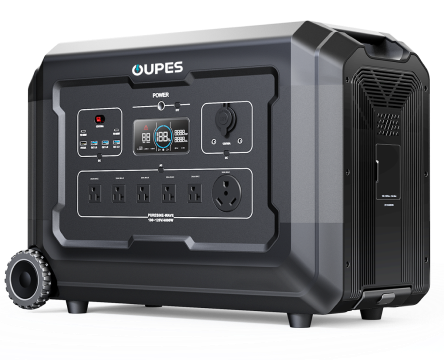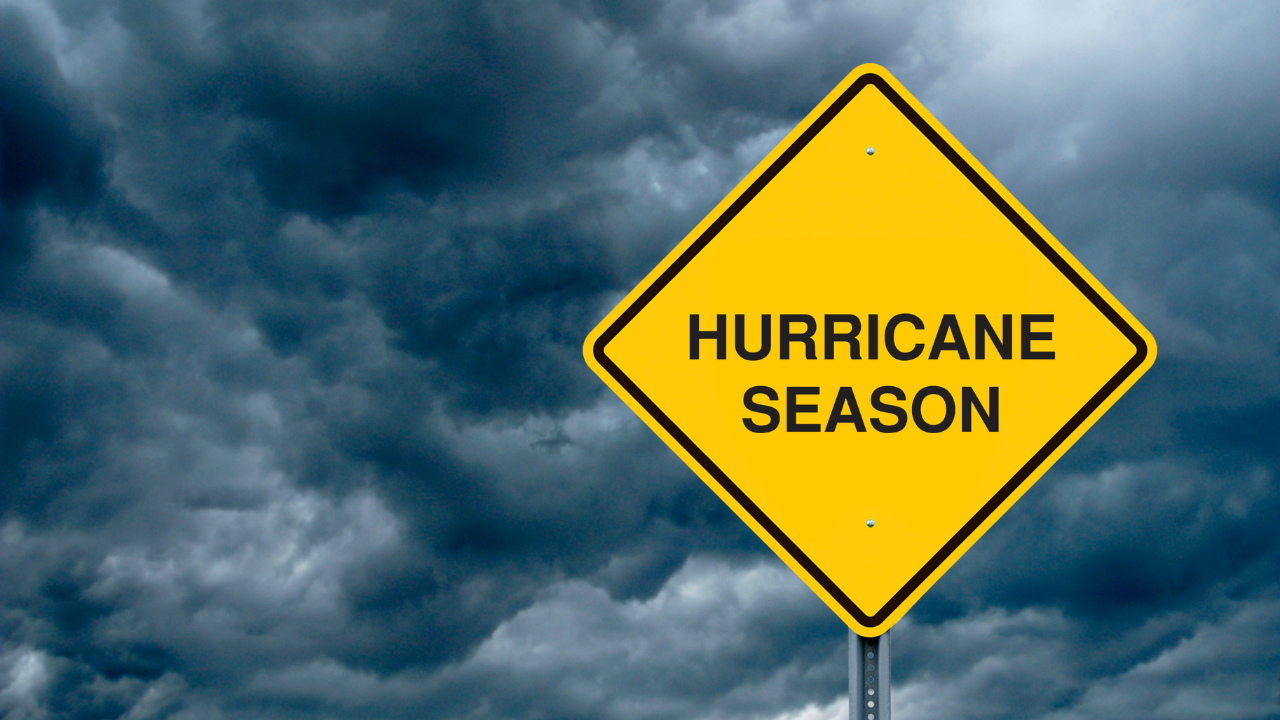When a hurricane warning comes down, power usually goes out first. You are left in the dark, food is spoiling, gadgets are going dead and the only source of light may be the uncharged flashlight that you forgot to plug in.
In Hurricane Ian, even five days after landfall, more than 600,000 consumers remained without electricity, showing how long recovery can take. One thing is obvious: you need a self-sufficient backup power source. This is when the solar generator will be helpful: quiet and fuel-free power to drive your essentials.
However, are solar powered generators really worth the cost in a hurricane? Will they be of use when things settle and grid power is restored? Let’s answer these questions for you in this article.
How solar generators hold up in Hurricane conditions
When there is a hurricane, the blackout may extend to days, or even longer. This is where a reliable backup source can power your essential appliances. Now, the question is, how do the solar generators cope with the pressure? Can your solar generator work during or right after the hurricane?
The good news is that solar generators are built for emergencies. They are designed with weather resistance in mind. While you won’t want to leave your panels out during a storm, most units are compact enough to move indoors quickly when the winds pick up.
Here’s what makes them stand out during storms:
● No fuel worries: Gas stations often shut down during hurricanes, and fuel can be hard to come by. The solar generators are charged by sunlight, and you do not have to depend on fuel lines.
● Safe for indoor use: Unlike gas-powered generators, solar generators do not emit carbon monoxide, therefore, they can be operated indoors, even in low-ventilation places.
● Low maintenance: They do not have many moving parts to break and do not require oil or filters that need replacement, which makes them more reliable in chaotic situations.
Power and recharge flexibility
Solar generators come in a variety of power options, from 500 Wh all the way to 10,000+ Wh. This is sufficient to power LED lights, charge phones and laptops and operate small fridges or medical equipment. When you choose a 220v solar power generator, it gives the option of powering heavier loads or supplying split-phase needs.
Solar power generator kits streamline routine power delivery so you can recharge your solar generator using panels once the sky is clear. Most kits include smart MPPT controllers that optimize charging, even under cloudy conditions.
Long-term reliability
Though more expensive upfront than a basic gas generator, a solar generator pays off during long outages. No fuel needed, no maintenance like oil changes, and absolutely no noise.
Is it worth it after the Hurricane?
No one can deny the importance of a reliable, self-sufficient energy source such as a solar generator. But, are they still worth it when the grid power is back? The answer is a big YES!
Although a solar generator is great for emergencies like a hurricane power outage, but it can be used as an additional power source in normal circumstances. As of early 2024, over 4.5 million U.S. homes use solar power, and residential solar adoption continues to grow at a record pace.
Reason?
Additional energy source: Solar energy, be it in the form of a complete solar setup or a portable solar generator, is a great way to supplement your grid power.
Lower utility bills: With the rising cost of grid electricity, solar generators can always help cut down your utility bills.
Portability: Solar generators are portable; you can take them on an outdoor adventure, power your RVs, or use them in remote workspaces. The possibilities are literally endless.
How to use one efficently
Your solar generator is not just a device; it is a lifeline when you have a hurricane heading your way. Here is how you can make the most of it:
Charge it before the storm
In a hurricane, when the sky is overcast, solar panels might not work as efficiently, so charge your generator fully well in advance, preferably a few days before the hurricane is likely to strike. If your model supports wall charging, plug it in early.
Prioritize essential devices
Use it smartly. Power only the most essential appliances like phones, lights, medical gear, fans, or a mini fridge, not the whole house. Make sure that you do not overload your generator and use it based on its battery capacity.
Protect the panels
Flying debris or strong winds will ruin solar panels. When there is a forecast of winds, it is best to disconnect your solar panels and bring them inside or keep them in a safe place. After the storm is over, assemble them again so that they can be used again.
Keep it indoors
Unlike the gas generators, the solar generators can be used indoors. Set it up in a dry, cool place, away from windows in case of water intrusion.
Stay organized
Have your charging cables, devices, and backup lighting ready in one place. Don’t wait until the power goes out to figure out what goes where.
FAQs
How to cover a generator during a hurricane?
Use a ventilated weatherproof canopy or durable tarp. Keep solar units in a shaded and elevated area to prevent any issue.
How to secure solar panels during hurricanes?
In case of roof-mounted solar panels, anchor them with heavy-duty brackets or straps, ideally to the ground or a secure frame. If you have portable solar panels, you can just fold and store them in a dry space for later use.
Will FEMA reimburse you for the generator after the hurricane?
Yes, if you bought or rented it for use during a federally declared disaster, and if it powered medical equipment. However, the maximum reimbursement is $629, with valid receipts and documentation.
What kind of generator do I need for emergencies?
Look for a robust solar power generator kit or a 220v solar power generator if you plan to run heavier appliances. Make sure it can handle critical loads and recharge via solar or AC charging.
Conclusion
So, are solar generators worth it during or after the hurricane outages? Absolutely. They offer clean, silent power with no fuel fuss and can deliver critical support when the grid fails.
Using a solar generator gives you reliable, renewable backup power. With possible FEMA reimbursement for medical use, investing in one may make both practical and financial sense.
Visit OUPES, find hurricane-ready solar generator setups built for home emergencies and beyond, and get peace of mind before the next storm hits.

































Leave a comment
This site is protected by hCaptcha and the hCaptcha Privacy Policy and Terms of Service apply.